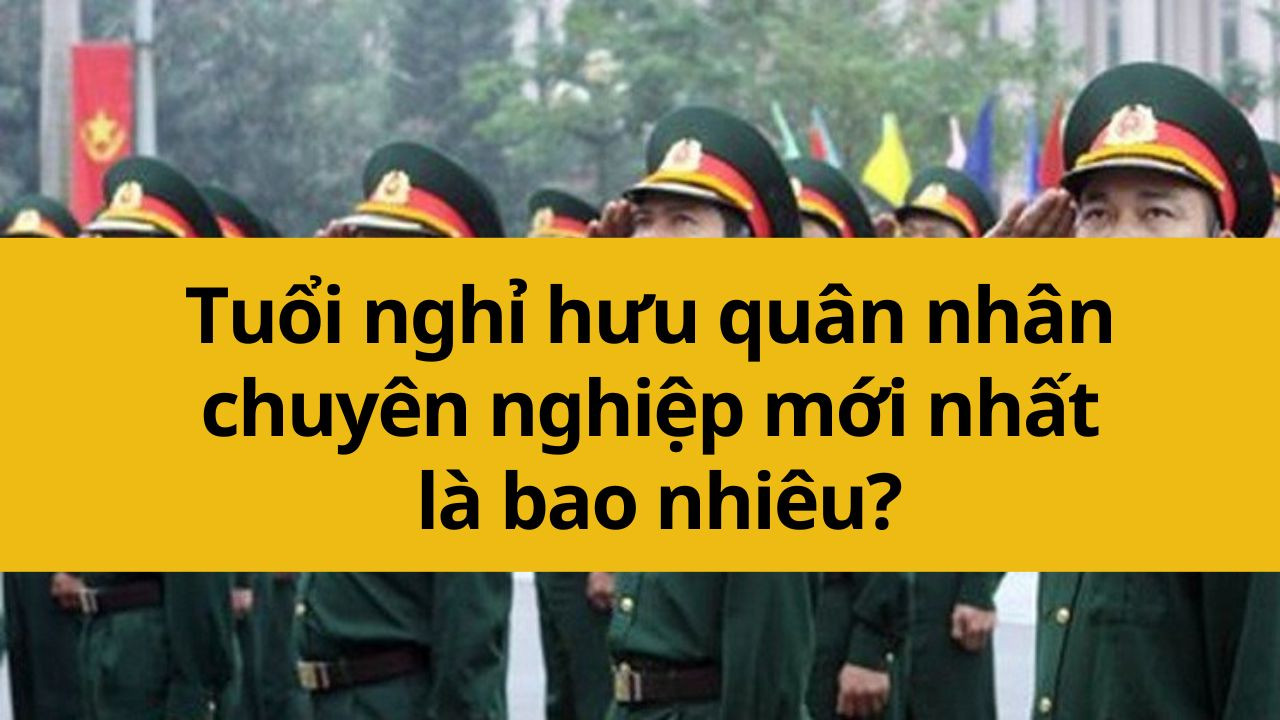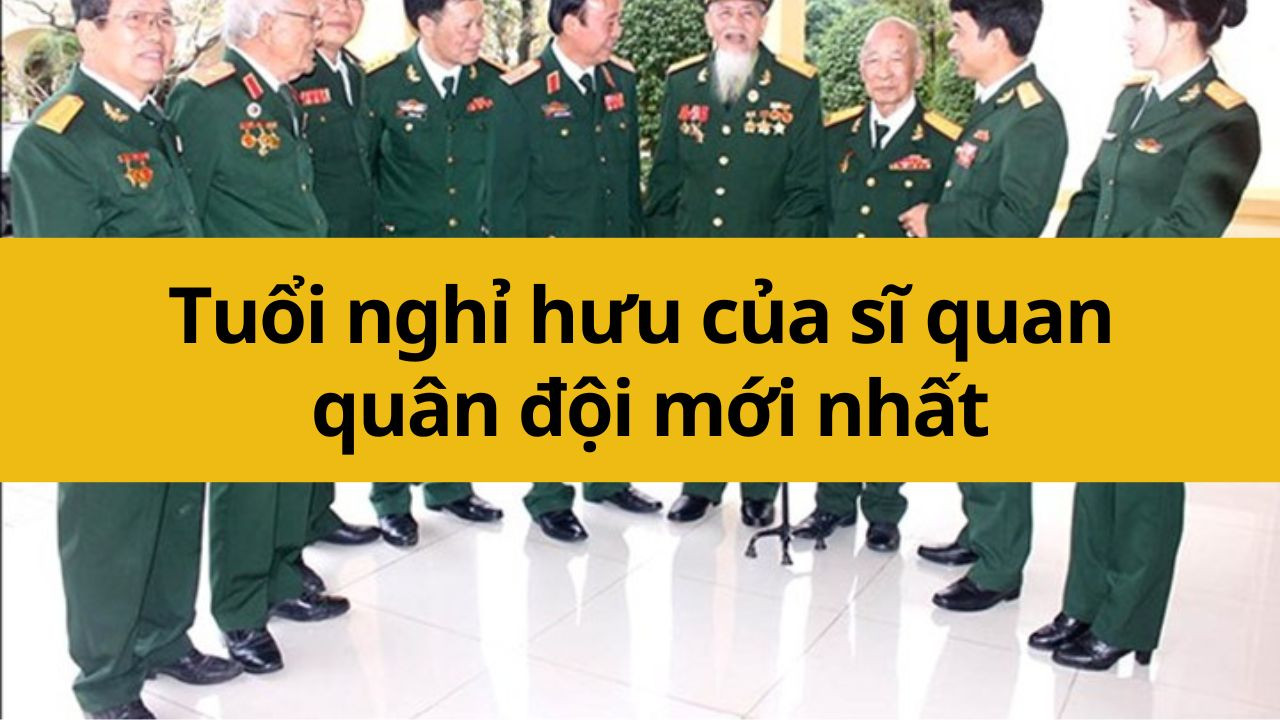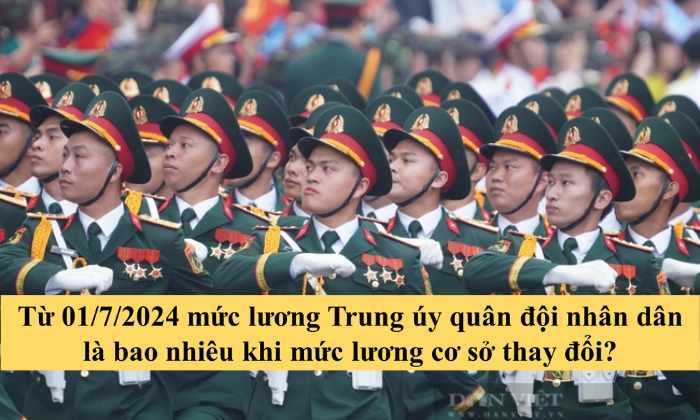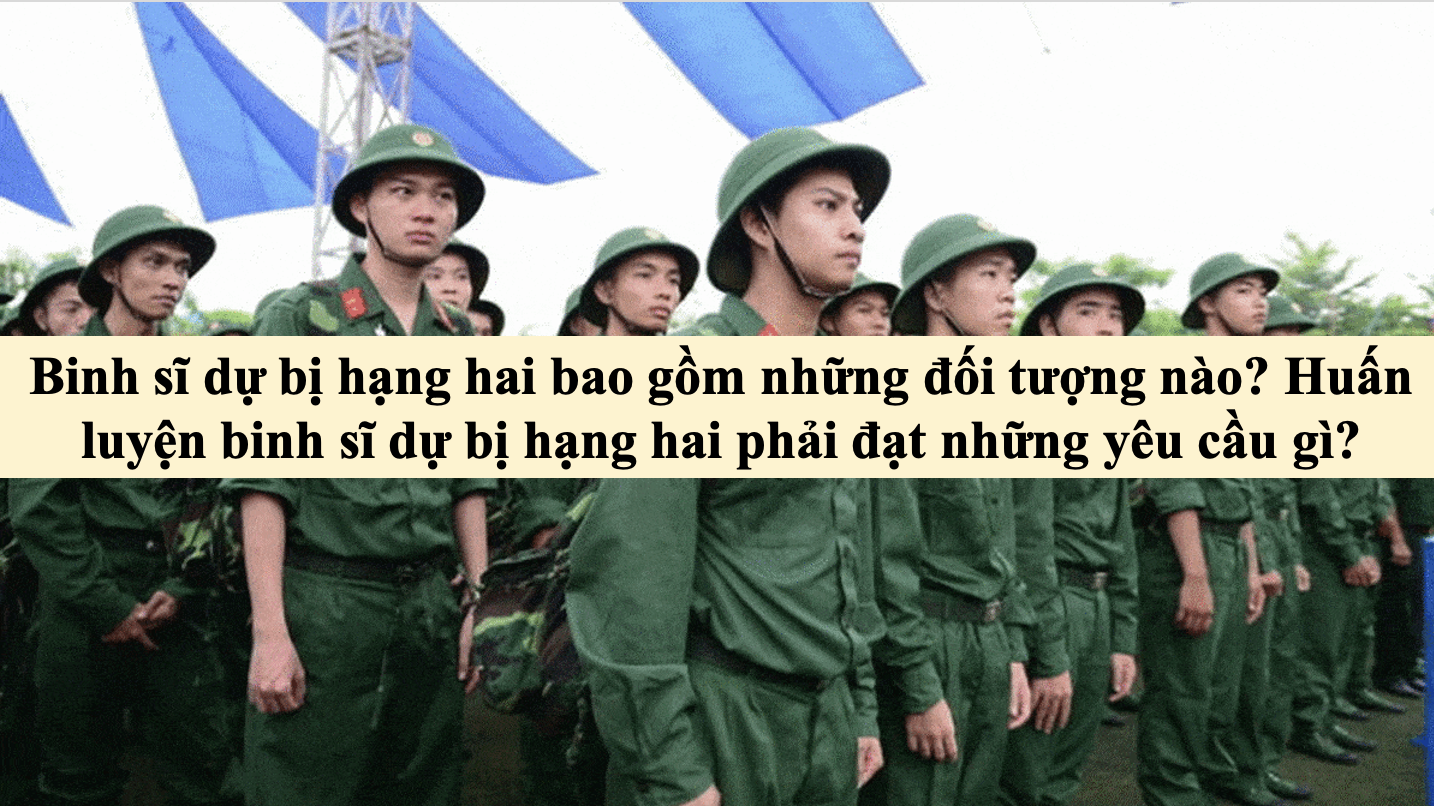 Tìm kiếm
Tìm kiếm
Chương 2 Luật Sĩ quan Quân đội nhân dân Việt Nam 1999: Quân hàm, chức vụ sĩ quan
| Số hiệu: | 16/1999/QH10 | Loại văn bản: | Luật |
| Nơi ban hành: | Quốc hội | Người ký: | Nông Đức Mạnh |
| Ngày ban hành: | 21/12/1999 | Ngày hiệu lực: | 01/04/2000 |
| Ngày công báo: | 15/02/2000 | Số công báo: | Số 6 |
| Lĩnh vực: | Bộ máy hành chính | Tình trạng: | Còn hiệu lực |
TÓM TẮT VĂN BẢN
Văn bản tiếng việt
Văn bản tiếng anh
1. Cấp bậc quân hàm cao nhất đối với chức vụ cơ bản của sĩ quan được quy định như sau:
Trung đội trưởng Thượng uý;
Đại đội trưởng Đại uý;
Tiểu đoàn trưởng Thiếu tá;
Trung đoàn trưởng, Huyện đội trưởng Trung tá;
Lữ đoàn trưởng Thượng tá;
Sư đoàn trưởng, Tỉnh đội trưởng Đại tá;
Tư lệnh Quân đoàn Thiếu tướng;
Tư lệnh Quân khu, Tư lệnh Quân chủng Trung tướng;
Chủ nhiệm Tổng cục Trung tướng;
Tổng Tham mưu trưởng, Chủ nhiệm Tổng cục Chính trị Đại tướng;
Bộ trưởng Bộ Quốc phòng Đại tướng.
2. Cấp bậc quân hàm cao nhất của chức vụ tương đương với chức vụ tương ứng quy định tại khoản 1 Điều này và các chức vụ còn lại do cấp có thẩm quyền quy định.
3. Sĩ quan ở đơn vị có nhiệm vụ đặc biệt hoặc ở lực lượng quân sự tỉnh, thành phố trực thuộc trung ương, huyện, quận, thị xã, thành phố thuộc tỉnh trọng yếu theo quy định của Bộ trưởng Bộ Quốc phòng thì cấp bậc quân hàm cao nhất cao hơn một bậc so với cấp bậc quân hàm cao nhất của chức vụ tương ứng quy định tại khoản 1 Điều này.
Những người sau đây được xét phong quân hàm sĩ quan tại ngũ:
1. Học viên tốt nghiệp đào tạo sĩ quan tại ngũ được phong quân hàm Thiếu uý; trường hợp tốt nghiệp loại giỏi hoặc tốt nghiệp loại khá mà đã tham gia chiến đấu, phục vụ chiến đấu hoặc là Anh hùng Lực lượng vũ trang nhân dân, Anh hùng Lao động thì được phong quân hàm Trung uý;
2. Hạ sĩ quan, binh sĩ trong thời chiến; quân nhân chuyên nghiệp và công chức quốc phòng tại ngũ; cán bộ, công chức ngoài quân đội và những người tốt nghiệp đại học trở lên vào phục vụ tại ngũ được bổ nhiệm giữ chức vụ của sĩ quan thì được phong cấp bậc quân hàm sĩ quan tương xứng.
1. Sĩ quan tại ngũ được thăng quân hàm khi có ba điều kiện sau đây:
a) Đủ tiêu chuẩn theo quy định;
b) Cấp bậc quân hàm hiện tại thấp hơn cấp bậc quân hàm cao nhất quy định đối với chức vụ đang đảm nhiệm;
c) Đủ thời hạn xét thăng quân hàm quy định tại khoản 2 Điều này.
2. Thời hạn xét thăng quân hàm đối với sĩ quan tại ngũ được quy định như sau:
Thiếu uý lên Trung uý 2 năm;
Trung uý lên Thượng uý 3 năm;
Thượng uý lên Đại uý 3 năm;
Đại uý lên Thiếu tá 4 năm;
Thiếu tá lên Trung tá 4 năm;
Trung tá lên Thượng tá 4 năm;
Thượng tá lên Đại tá 4 năm;
Thăng quân hàm cấp Tướng không quy định thời hạn.
Thời gian sĩ quan học tập tại trường được tính vào thời hạn xét thăng quân hàm.
Trong thời chiến, thời hạn xét thăng quân hàm có thể được rút ngắn theo quy định của cấp có thẩm quyền.
3. Sĩ quan lập công đặc biệt xuất sắc thì được xét thăng quân hàm vượt bậc.
Sĩ quan được xét thăng quân hàm trước thời hạn quy định tại khoản 2 Điều 17 của Luật này trong các trường hợp sau đây:
1. Trong chiến đấu lập chiến công xuất sắc hoặc trong công tác, nghiên cứu khoa học được tặng Huân chương;
2. Hoàn thành tốt chức trách, nhiệm vụ mà cấp bậc quân hàm hiện tại thấp hơn cấp bậc quân hàm cao nhất quy định đối với chức vụ mà sĩ quan đang đảm nhiệm từ hai bậc trở lên.
1. Sĩ quan đến thời hạn xét thăng quân hàm mà chưa đủ điều kiện thì được xét thăng quân hàm vào những năm tiếp theo, nhưng không quá thời hạn quy định tại khoản 2 Điều 17 của Luật này; nếu hết thời hạn đó vẫn không được thăng quân hàm thì thôi phục vụ tại ngũ.
2. Trong thời hạn xét thăng quân hàm, sĩ quan bị kỷ luật cảnh cáo, giáng chức, cách chức hoặc trong năm cuối của thời hạn xét thăng quân hàm, sĩ quan bị kỷ luật khiển trách thì thời hạn xét thăng quân hàm phải kéo dài ít nhất một năm.
3. Sĩ quan bị kỷ luật giáng cấp bậc quân hàm, sau ít nhất một năm kể từ ngày bị giáng cấp, nếu tiến bộ thì được xét thăng quân hàm.
Việc thăng hoặc giáng cấp bậc quân hàm sĩ quan mỗi lần chỉ được một bậc; trường hợp đặc biệt mới thăng hoặc giáng nhiều bậc.
1. Sĩ quan được bổ nhiệm chức vụ khi có nhu cầu biên chế và đủ tiêu chuẩn quy định đối với chức vụ đảm nhiệm.
2. Việc miễn nhiệm chức vụ đối với sĩ quan được thực hiện trong các trường hợp sau đây :
a) Khi thay đổi tổ chức mà không còn biên chế chức vụ sĩ quan đang đảm nhiệm;
b) Sĩ quan không còn đủ tiêu chuẩn và điều kiện đảm nhiệm chức vụ hiện tại;
c) Sĩ quan hết hạn tuổi phục vụ tại ngũ quy định tại khoản 1 Điều 13 của Luật này mà không được kéo dài thời hạn phục vụ tại ngũ.
3. Sĩ quan có thể được giao chức vụ thấp hơn chức vụ đang đảm nhiệm hoặc chức vụ có quy định cấp bậc quân hàm cao nhất thấp hơn cấp bậc quân hàm hiện tại trong những trường hợp sau đây:
a) Tăng cường cho nhiệm vụ đặc biệt;
b) Thay đổi tổ chức, biên chế;
c) Điều chỉnh để phù hợp với năng lực, sức khoẻ của sĩ quan.
Sĩ quan có cấp bậc quân hàm cao hơn là cấp trên của sĩ quan có cấp bậc quân hàm thấp hơn; trường hợp sĩ quan có chức vụ cao hơn nhưng có cấp bậc quân hàm bằng hoặc thấp hơn cấp bậc quân hàm của sĩ quan thuộc quyền thì sĩ quan có chức vụ cao hơn là cấp trên.
Trường hợp khẩn cấp mà sĩ quan thuộc quyền không chấp hành mệnh lệnh có thể gây ra hậu quả nghiêm trọng thì sĩ quan có chức vụ từ Trung đoàn trưởng trở lên được quyền tạm đình chỉ chức vụ đối với sĩ quan đó và chỉ định người thay thế tạm thời, đồng thời phải báo cáo ngay cấp trên trực tiếp.
Căn cứ vào yêu cầu nhiệm vụ quốc phòng, sĩ quan tại ngũ được biệt phái đến công tác ở cơ quan, tổ chức ngoài quân đội, do cấp có thẩm quyền quyết định.
1. Thẩm quyền bổ nhiệm chức vụ, phong, thăng quân hàm đối với sĩ quan được quy định như sau:
a) Chủ tịch nước bổ nhiệm Tổng tham mưu trưởng, Chủ nhiệm Tổng cục Chính trị; phong, thăng quân hàm Đại tướng, Thượng tướng, Đô đốc Hải quân;
b) Thủ tướng Chính phủ bổ nhiệm Chủ nhiệm Tổng cục, Tư lệnh Quân khu, Tư lệnh Quân chủng, Tư lệnh Quân đoàn và các chức vụ tương đương; phong, thăng quân hàm Trung tướng, Phó Đô đốc Hải quân, Thiếu tướng, Chuẩn Đô đốc Hải quân;
c) Việc bổ nhiệm các chức vụ thuộc ngành Kiểm sát, Toà án, Thi hành án trong quân đội được thực hiện theo quy định của pháp luật;
d) Bộ trưởng Bộ Quốc phòng bổ nhiệm các chức vụ và phong, thăng các cấp bậc quân hàm còn lại.
2. Cấp có thẩm quyền quyết định bổ nhiệm, phong, thăng quân hàm đến chức vụ, cấp bậc nào thì có quyền quyết định kéo dài thời hạn phục vụ tại ngũ, nâng lương, điều động, biệt phái, miễn nhiệm, giao chức vụ thấp hơn, giáng chức, cách chức, tước quân hàm, giáng cấp bậc quân hàm sĩ quan, cho thôi phục vụ tại ngũ, chuyển ngạch, chuyển hạng và giải ngạch sĩ quan dự bị đến chức vụ, cấp bậc đó.
Article 15.- Highest ranks for officers’ posts
1. The highest ranks for officers’ fundamental posts are stipulated as follows:
Platoon leader: senior lieutenant;
Company commander: captain
Battalion commander: major
Regiment commander, district military commander: lieutenant colonel;
Brigade commander: senior lieutenant colonel;
Division commander, provincial military commander: colonel;
Army corps commander: Major general;
Military zone commander, army service commander: lieutenant general;
General Department director: lieutenant general;
Chief of the General Staff, director of the Political General Department: General;
Minister of Defense: General.
2. The highest ranks of posts corresponding to those defined in Clause 1, this Article and the remaining posts shall be stipulated by the competent authorities.
3. For officers of special task force units, the military forces of key provinces, centrally-run cities, districts, provincial capitals and cities according to the stipulations of the Ministry of Defense, the highest ranks shall be one grade higher than the maximum ranks of the corresponding posts defined in Clause 1 of this Article.
Article 16.- Subjects entitled to be bestowed with ranks of active officers
The following persons shall be considered for bestowment of active officers’ ranks:
1. Cadets graduating from active officers’ training schools shall be bestowed the rank of second lieutenant; those who graduate with excellent grade or good grade but have already been engaged in combat, combat service or conferred the title of "Hero of the People’s Armed Forces" or "Labor Hero" shall be bestowed the rank of lieutenant;
2. Non-commissioned officers and soldiers during war time; professional army men and military employees on active service; officials and employees outside the army and persons with university or higher degrees, who are mobilized for active service in the army and appointed to the officers’ posts, shall be bestowed the corresponding ranks of officers.
Article 17.- Rank promotion for active officers
1. Active officers shall be entitled to rank promotion when meeting the three following conditions:
a) Fully meeting the prescribed conditions;
b) Their current ranks are lower than the highest ranks prescribed for the posts they are holding;
c) Meeting the time limits for rank promotion consideration prescribed in Clause 2, this Article.
2. The rank promotion consideration time limits for active officers are stipulated as follows:
From second lieutenant to lieutenant 2 years;
From lieutenant to senior lieutenant 3 years;
From senior lieutenant to captain 3 years;
From captain to major 4 years;
From major to lieutenant colonel 4 years;
From lieutenant colonel to senior colonel 4 years;
From senior colonel to colonel 4 years;
The time limits for general rank promotion are not stipulated.
The time the officers study at schools shall be counted into the duration for rank promotion consideration.
During war time, the rank promotion consideration time limits may be shortened according to the stipulations of the competent authorities.
3. Officers recording exceptionally outstanding merits shall be considered for overskipping rank promotion.
Article 18.- Officers’ rank promotion ahead of time
Officers shall be considered for rank promotion ahead of the time limits prescribed in Clause 2, Article 17 of this Law in the following cases where:
1. They record outstanding exploits in combat or are awarded Orders for achievements in their work or scientific research;
2. They well fulfill their responsibilities and tasks of the current ranks which are two or more grades lower than the highest ranks prescribed for the posts the officers are holding.
Article 19.- Prolonging the time limits for officers’ rank promotion consideration
1. Those officers who are due for rank promotion consideration but fail to fully meet the prescribed conditions shall be considered for rank promotion in subsequent years, but not beyond the time limits prescribed in Clause 2, Article 17 of this Law; if past such time limits the officers still fail to be promoted, they shall be demobilized.
2. If during the promotion consideration time limit, officers are disciplined with warning, demotion or stripping or in the final year of the rank promotion consideration time limits, the officers are disciplined with reprimand, the promotion consideration time limits shall be prolonged for at least one year.
3. Demoted officers shall be considered for rank promotion after at least one year from the date of demotion if they make progress.
Article 20.- The levels of officers’ rank demotion and promotion.
Officers are promoted or demoted only one grade at a time; only for special cases, multi-grade demotion or promotion shall apply.
Article 21.- Appointment and dismissal for officers’ posts
1. Officers shall be appointed to posts when there are staff demand and they fully meet the criteria prescribed for their incumbent posts.
2. The dismissal of officers from their posts shall be effected in the following cases:
a) When there is change in organization which no longer requires the posts being held by the officers;
b) The officers no longer satisfy the criteria and conditions for holding the current posts;
c) The officers are beyond the ages for active service in the army as provided for in Clause 1, Article 13 of this Law and are not allowed to prolong their active service in the army.
3. Officers may be assigned posts lower than their incumbent posts or posts with prescribed highest ranks being lower than their current ranks in the following cases where:
a) They are reinforced for special tasks;
b) There are changes in organization, staff;
c) Adjustments are made for conformity with the officers’ capabilities and/or health conditions.
Article 22.- Relations among officers’ grades and posts
Officers with higher grades are the superior of the officers with lower grades; where officers with posts higher but grades equal or lower than the grades of officers under their management, the officers with higher posts shall be the superior.
Article 23.- The right to suspend the posts of officers in emergency cases
In emergency cases where officers refuse to obey orders which may cause serious consequences, the officers with the post of regiment commander or higher may suspend the posts held by such officers and appoint other persons to temporarily take their places, ant at the same time immediately report such to the immediate superiors.
Article 24.- Detachment of officers
Depending on the defense requirements and tasks, active officers shall be detached to work in non-military agencies and/or organizations by decisions of the competent authorities.
Article 25.- Competence to make decisions on officers
1. Competence for post appointment, rank bestowment and promotion for officers is stipulated as follows:
a) The State President shall appoint the Chief of the General Staff and the director of the General Department for Political Affair; bestow and promote the ranks of General, Senior Lieutenant General and Naval Admiral;
b) The Prime Minister shall appoint General Department directors, Military Zone commanders, Army Service commanders, Army Corps commanders and corresponding posts; bestow and promote the ranks of Lieutenant General, Naval Vice Admiral, Major General and Naval Rear Admiral;
c) The appointment of posts in the Procuracy, Courts and Judgment Execution Bodies in the army shall comply with the provisions of law;
d) The Minister of Defense shall make post appointment and rank bestowment and promotion for the remaining cases.
2. Authorities competent to appoint any posts and bestow and promote any ranks shall have the right to prolong the active service of, to increase salaries for, to mobilize, detach, remove from posts, assign lower posts to, demote, strip, degrade, discharge from active service, officers of such posts and ranks, change the status, class and remove the status of reserve officers of such posts and ranks.
Cập nhật
Bài viết liên quan
Tuổi nghỉ hưu của quân nhân chuyên nghiệp mới nhất 2025 là bao nhiêu?

Tuổi nghỉ hưu của quân nhân chuyên nghiệp mới nhất 2025 là bao nhiêu?
Tuổi nghỉ hưu của quân nhân chuyên nghiệp là một trong những vấn đề quan trọng trong việc quản lý nhân sự trong quân đội. Mỗi năm, các quy định về độ tuổi nghỉ hưu có thể được điều chỉnh để phù hợp với yêu cầu công tác và sự phát triển của lực lượng vũ trang. Trong năm 2025, độ tuổi nghỉ hưu của quân nhân chuyên nghiệp đã được quy định cụ thể, nhằm đảm bảo sự ổn định và hiệu quả trong công tác tổ chức, điều động nhân sự. Bài viết này sẽ cập nhật thông tin về tuổi nghỉ hưu của quân nhân chuyên nghiệp theo quy định mới nhất. 31/12/2024Sĩ quan quân đội khi nghỉ hưu thì được hưởng những quyền lợi gì mới nhất 2025?

Sĩ quan quân đội khi nghỉ hưu thì được hưởng những quyền lợi gì mới nhất 2025?
Việc nghỉ hưu của sĩ quan quân đội không chỉ đánh dấu một chặng đường dài phục vụ tổ quốc mà còn gắn liền với các quyền lợi và chế độ đặc biệt, nhằm đảm bảo đời sống ổn định cho họ sau khi rời quân ngũ. Trong năm 2025, các quy định về quyền lợi của sĩ quan nghỉ hưu có những điểm mới quan trọng, bao gồm chế độ lương hưu, trợ cấp một lần, cũng như các quyền lợi về khám chữa bệnh, nhà ở, và các phúc lợi khác. Bài viết này sẽ cập nhật các quyền lợi mà sĩ quan quân đội được hưởng khi nghỉ hưu theo các quy định mới nhất, nhằm giúp hiểu rõ hơn về chế độ chính sách dành cho họ. 31/12/2024Tuổi nghỉ hưu của sĩ quan quân đội mới nhất 2025

Tuổi nghỉ hưu của sĩ quan quân đội mới nhất 2025
Trong quân đội, việc xác định tuổi nghỉ hưu của sĩ quan là một vấn đề quan trọng, ảnh hưởng trực tiếp đến công tác tổ chức và điều động cán bộ. Mỗi năm, các quy định về tuổi nghỉ hưu có thể được điều chỉnh nhằm đáp ứng yêu cầu phát triển của lực lượng vũ trang và tình hình thực tế của đất nước. Bài viết này sẽ cập nhật thông tin mới nhất về tuổi nghỉ hưu của sĩ quan quân đội, giúp hiểu rõ hơn về các quy định và chính sách liên quan. 31/12/2024Từ 01/7/2024 mức lương Trung úy quân đội nhân dân là bao nhiêu khi mức lương cơ sở thay đổi?

Từ 01/7/2024 mức lương Trung úy quân đội nhân dân là bao nhiêu khi mức lương cơ sở thay đổi?
Từ ngày 01/7/2024, mức lương cơ sở sẽ có sự điều chỉnh, kéo theo những thay đổi về thu nhập của cán bộ, công chức, viên chức, và lực lượng vũ trang, bao gồm cả Quân đội nhân dân Việt Nam. Đối với Trung úy - một trong những cấp bậc sĩ quan quan trọng trong quân đội, câu hỏi đặt ra là mức lương của họ sẽ thay đổi như thế nào khi áp dụng mức lương cơ sở mới? Bài viết này sẽ cung cấp thông tin chi tiết về mức lương của Trung úy Quân đội nhân dân sau khi mức lương cơ sở chính thức điều chỉnh vào tháng 7/2024. 09/11/2024Binh sĩ dự bị hạng hai bao gồm những đối tượng nào? Huấn luyện binh sĩ dự bị hạng hai phải đạt những yêu cầu gì?


 Luật Sĩ quan Quân đội nhân dân Việt Nam 1999 (Bản Word)
Luật Sĩ quan Quân đội nhân dân Việt Nam 1999 (Bản Word)